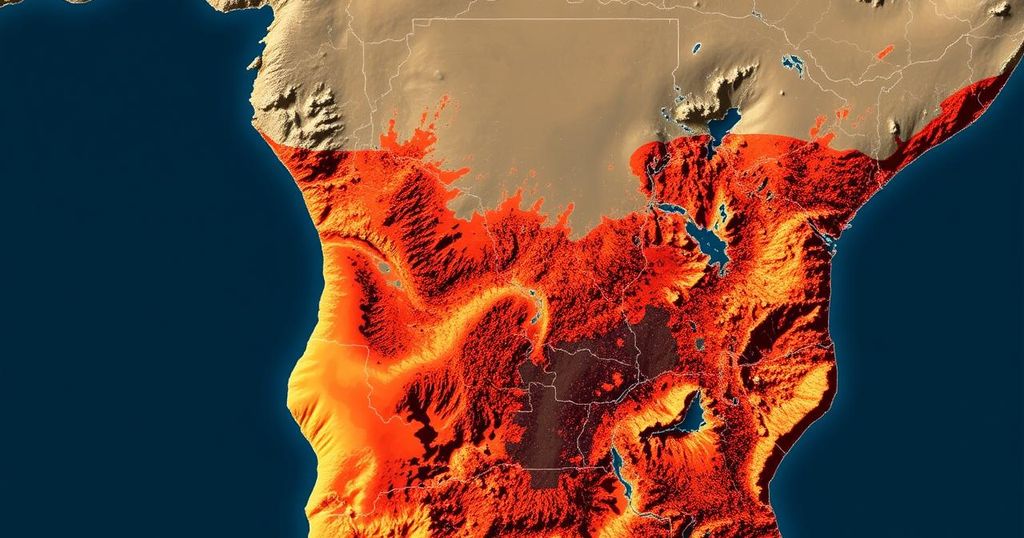Southern Africa is experiencing its worst drought in a century, affecting over 27 million people and leading to malnutrition in 21 million children. Countries like Zambia and Zimbabwe have declared national disasters due to massive crop and livestock loss. The crisis is projected to worsen until early next year, driven by climate change and insufficient rainfall.
Southern Africa is currently grappling with its most severe drought in a century, instigating profound humanitarian crises across the region. An alarming 27 million individuals are affected, with 21 million children suffering from malnutrition, according to the United Nations World Food Programme (WFP). Nations such as Lesotho, Malawi, Namibia, Zambia, and Zimbabwe have enacted national disaster declarations in response to the drought’s devastating impact on agriculture, livestock, and health. The WFP has indicated that this crisis is anticipated to worsen until the next harvest season, projected for March or April of the following year. The onset of October signifies the beginning of the lean season, which is expected to exacerbate food shortages month by month until new crops can be harvested. WFP spokesperson Tomson Phiri remarked, “A historic drought – the worst food crisis yet – has devastated more than 27 million lives across the region.” Due to the drought, the farming-dependent population faces dire consequences, as rain-fed agriculture is the primary source of both food and income. The crisis has also been aggravated by the El Niño phenomenon, resulting in decreased rainfall further impacted by climate change. In a previous statement issued in July, a UN official labeled this drought as unmatched in severity within the last century, highlighting losses including a devastating 70% of the harvest in Zambia and an 80% loss in Zimbabwe. Furthermore, the drought has diminished hydropower capabilities leading to electricity shortages, while Zimbabwe and Namibia have resorted to culling wildlife to meet the pressing nutritional needs of their populations. With substantial reliance on rain-fed agricultural systems, sub-Saharan Africa remains highly vulnerable to climate variabilities, creating detrimental effects on food production, natural resources, and the overall livelihoods of millions. These recurring climate change-induced anomalies are exerting profound effects on crop yields, nutritional quality, and harvest cycles.
The situation in Southern Africa represents a critical intersection of environmental crisis, food insecurity, and socio-economic challenges. This region has historically depended on rain-fed agriculture, making it particularly vulnerable to climate fluctuations and droughts. The current drought has been exacerbated by climatic events such as El Niño and is compounded by the impact of climate change, causing erratic rainfall patterns and increasing temperatures. As nations declare states of emergency, the broader implications of such agricultural failures include not only food scarcity but also rising malnutrition, economic instability, and a potential humanitarian disaster on an extensive scale.
In summary, the catastrophic drought spanning Southern Africa underscores the susceptibility of the region to environmental changes, revealing the profound humanitarian crises it triggers. With millions on the brink of starvation, particularly children, urgent international response and resource allocation are necessary to avert a full-scale disaster. The situation is dire, and without substantial interventions, the repercussions of this drought will resonate across generations.
Original Source: www.aljazeera.com






